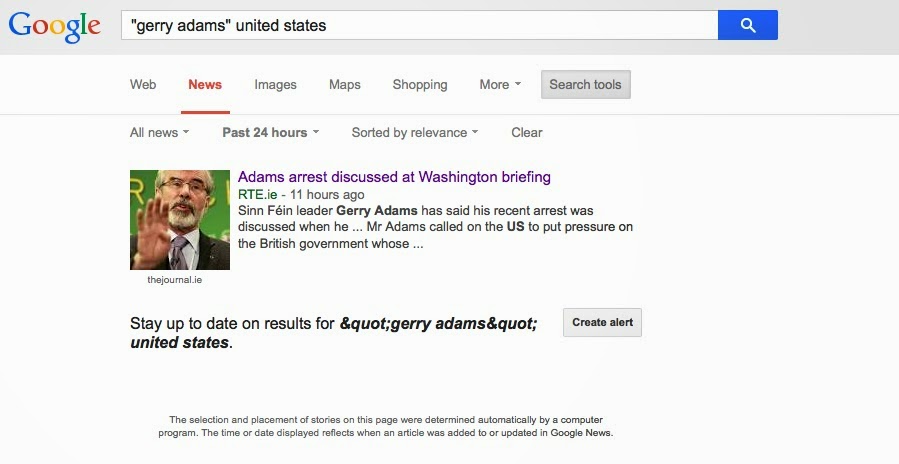Three years ago, when Boston College filed a motion in a federal court to quash subpoenas of Belfast Project interviews, Assistant U.S. Attorney John T. McNeil flatly rejected the idea that the release of those interviews from a protected academic archive might endanger people involved in the project. You can read McNeil's July 1, 2011 brief here. But here's the relevant passage, from pg. 2:
While the Respondents make other equitable and factual claims, including the claims that the researchers will face retribution and that the disclosure of the materials will threaten the political stability in Northern Ireland, those claims falter in the face of close scrutiny. The researchers themselves, and the subject of the interviews, widely publicized their involvement in this oral history project long before the subpoenas in this case were issued. Moreover, the Respondents’ decision to publicize the issuance of the subpoenas – which had been kept under seal by the United States – belies any claim of such risk. If there were a substantial risk of retribution, the Respondents’ efforts to publicize the subpoenas would compound the purported problem, rather than mitigate it.So the release of Belfast Project interviews would be no big deal: no risk to the political stability of Northern Ireland, no risk of retribution for people involved in the project. No good reason not to pry open the archive, your honor. No danger at all. They made this claim often and loudly; see also this example.
This week, Assistant U.S. Attorney John T. McNeil filed two documents with the same court -- a brief, and a supporting declaration -- to argue against a federal judge's proposal to publicly release documents filed under seal in the matter of the Belfast Project subpoenas. Why? Because, ladies and gentlemen, the release of material related to the Belfast Project endangers witnesses and might subject people to retribution.
Same prosecutor, same case. The material should be released, because warnings about retribution are silly; the material must not be released, because it's dangerous and people will get hurt.
Here's a link to the brief; the relevant language is on pg. 2, where McNeil writes that British officials "continue to seek that the materials remain impounded to ensure that evidence (both testimonial and documentary) is not destroyed or altered, and to ensure that witnesses and investigators are not subject to harassment, reprisals or tampering."
And here's a link to the supporting declaration, where McNeil writes that "the release of such information could unfairly impugn the reputation of those witnesses and suspects, or subject them to retribution."
Suddenly, three years later, the Department of Justice says the release of documentary material related to the Belfast Project threatens to subject people to retribution.
So what does that say about the decision to pry the interviews out of the archive in the first place?





